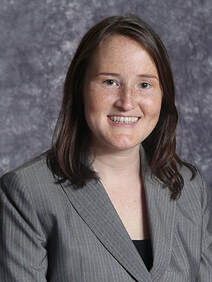
Becher is a rural doctor working a large patient panel for Community Care of West Virginia in Clay County. She sees multiple generations of the same families—the whole family tree, in some cases. “There is nothing else here. No hospital. No specialists. And we have a lot of social determinants of health in this area,” she says. “We don’t have a grocery store. Some people don’t have access to clean drinking water. Some patients don’t have running water at all.”
Becher’s efforts go way beyond the exam room. She writes grants after a full day in the clinic, in her spare time, to help patients keep the lights on. She hands out $50 vouchers that they can spend in a nearby store on food. And she’s always on the hunt for solutions. “We need a living wage, appropriate food subsidies, and change at the state level on a bigger scale,” she says. “I’m going to keep doing everything I can to remind everyone I can of those needs.”
To link to the article in the magazine, click here.

 RSS Feed
RSS Feed









